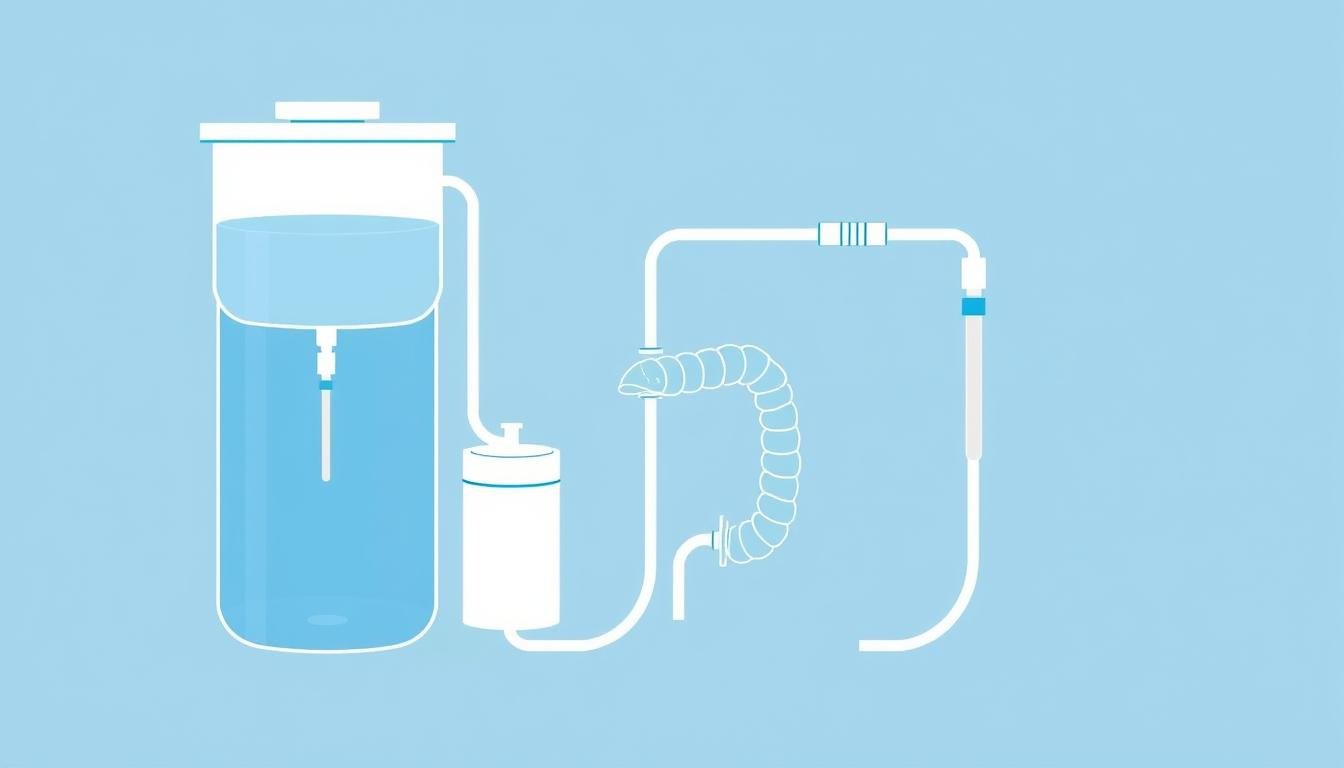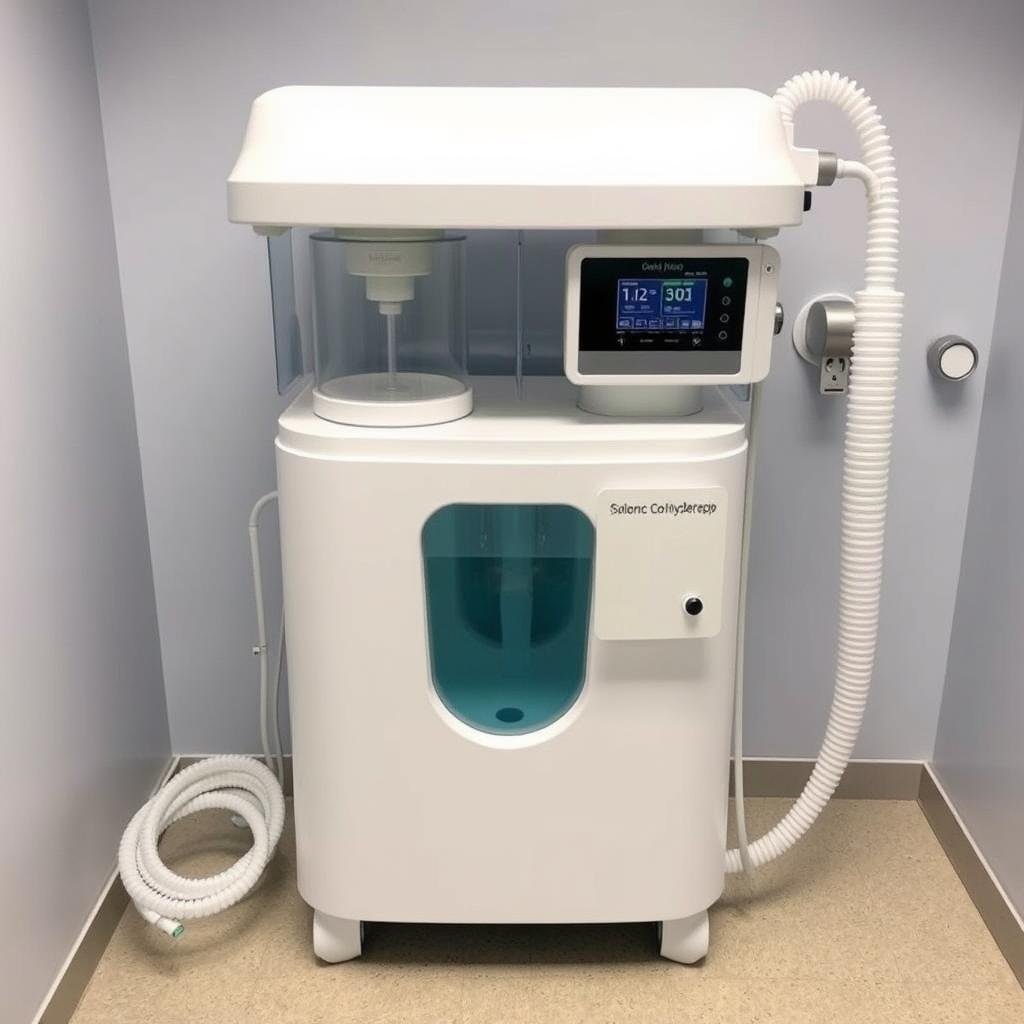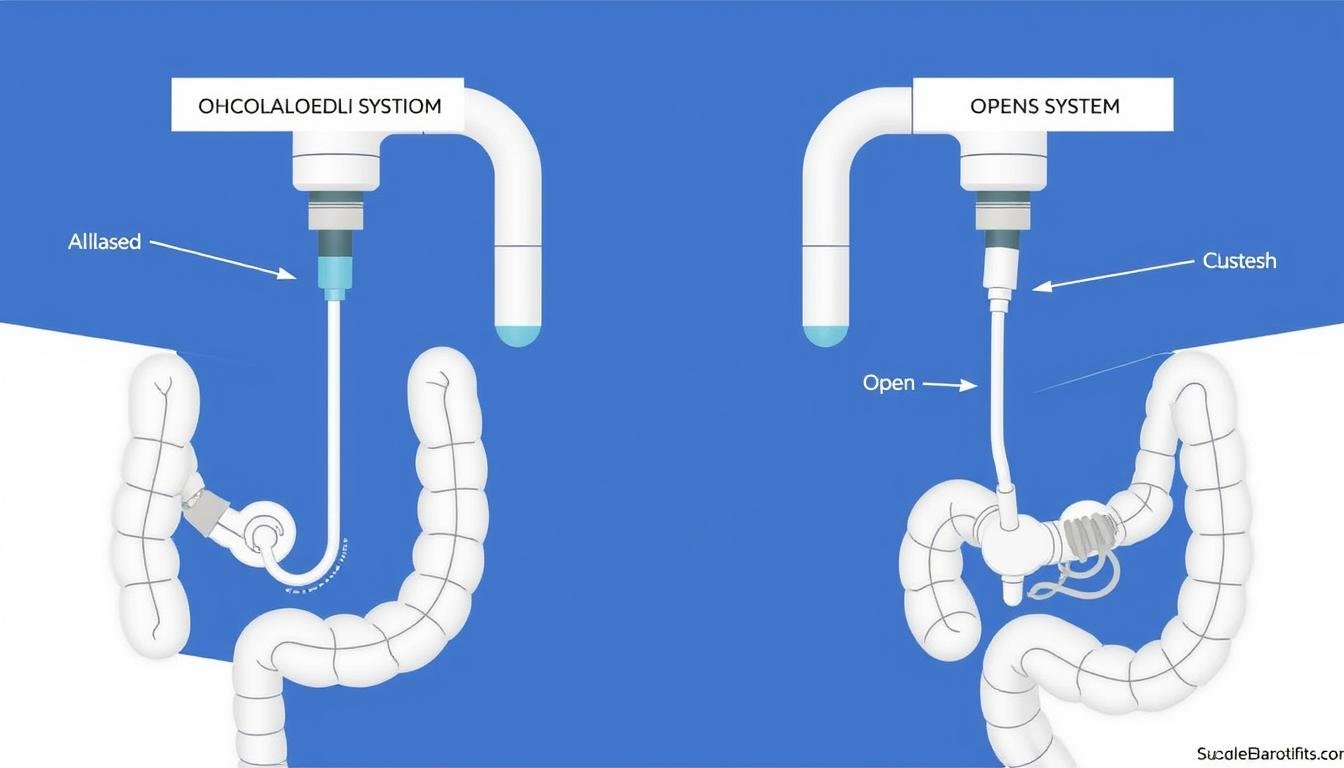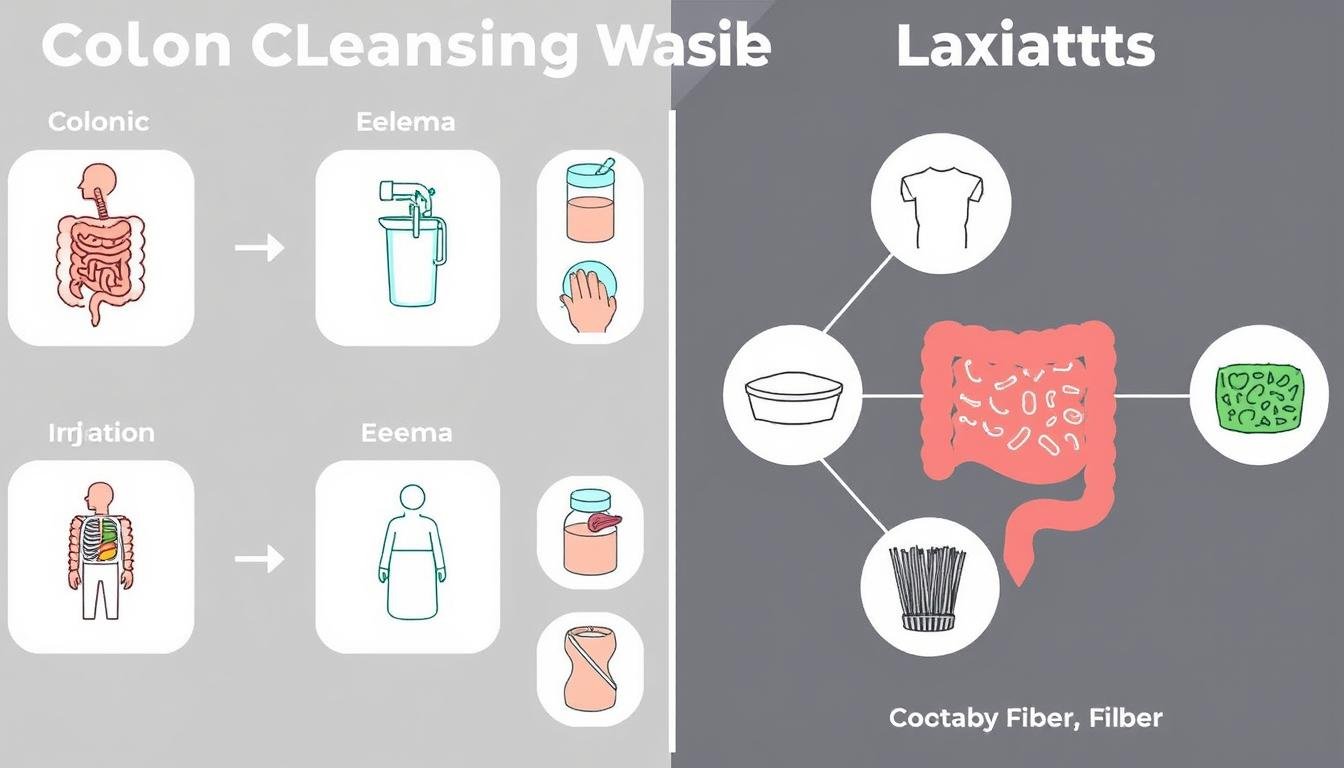Colon Hydrotherapy Device Manufacturer
What Is a Colonic?

A colonic is a procedure where large amounts of water (sometimes mixed with herbs or other substances) are flushed through the colon via a tube inserted into the rectum. Unlike an enema, which affects only the lower part of the colon, a colonic irrigation aims to cleanse the entire large intestine.
The procedure is based on the ancient concept of “autointoxication” – the belief that waste products in the colon can poison the body and lead to various health problems. Modern colonic practitioners often refer to this as “detoxification,” suggesting that removing accumulated waste can improve overall health.
Colonics are typically performed at specialized wellness centers, spas, or alternative health clinics by practitioners who may be called colonic hygienists or colon hydrotherapists. It’s important to note that in many places, these practitioners are not required to have medical training or licensure.
How Colonic Irrigation Works
The Procedure
What Is a Colonic-During a colonic irrigation session, you typically lie on a treatment table while a practitioner inserts a disposable tube into your rectum. This tube is connected to a device that controls the flow of water into and out of your colon.
Water flows into your colon through one tube, and waste material exits through another tube or the same tube. The practitioner may apply gentle pressure to your abdomen to help move the water through your intestines. Some systems allow you to see the waste material as it leaves your body-What Is a Colonic.
A typical session lasts between 30 to 60 minutes. The amount of water used varies, but can be several gallons throughout the procedure. Some practitioners add herbs, coffee, or other substances to the water, claiming additional benefits.

Types of Colonic Equipment

There are two main types of colonic irrigation systems:
Closed Systems
In a closed system, the waste material is removed through the same tube that delivers water, or through a separate tube, without being exposed to open air. These systems are generally considered more hygienic and offer more privacy, as the waste is directly channeled into a disposal system.
Open Systems
What Is a Colonic-With open systems, waste material is expelled around the insertion tube directly into a basin beneath you. The practitioner may observe the waste to assess your condition. Some people find open systems uncomfortable due to the lack of privacy, but practitioners argue they allow better monitoring of what’s being removed.
Claimed Benefits of Colonics

Proponents of colonic irrigation claim numerous health benefits, though it’s important to note that many of these claims lack substantial scientific evidence. Some commonly claimed benefits include:
Digestive Benefits
- Relief from constipation
- Improved bowel regularity
- Reduced bloating and gas
- Alleviation of IBS symptoms
- Prevention of constipation-related issues
Systemic Benefits
- Removal of toxins from the body
- Increased energy and vitality
- Improved immune function
- Enhanced mental clarity
- Weight loss support
A small pilot study published in the journal Techniques in Coloproctology found that colonic irrigation improved symptoms in some patients with irritable bowel syndrome (IBS), including reduced abdominal pain and improved stool consistency. However, larger studies are needed to confirm these findings.
Medical Perspective on Colonics

Most mainstream medical organizations and healthcare providers do not recommend colonic irrigation for general health maintenance. The medical community generally holds the following positions:
Scientific Evidence
What Is a Colonic-There is limited scientific evidence supporting the use of colonics for general health. The concept of “autointoxication” that underlies colonic therapy has been largely rejected by modern medicine. The colon naturally eliminates waste and bacteria, and the liver and kidneys are primarily responsible for removing toxins from the body.
Natural Colon Function
The human body is designed to eliminate waste efficiently without intervention. The colon contains beneficial bacteria that aid in digestion and immunity. Disrupting this natural balance through frequent colonics may potentially harm gut flora and interfere with normal bowel function.
According to the Cleveland Clinic, “Colon cleanses shouldn’t be used for routine problems. Any treatment you have done should be approved and supervised by a doctor.”
Risks and Side Effects

Colonic irrigation carries several potential risks and side effects that should be carefully considered:
Potential Risks of Colonics
- Perforation of the bowel – The insertion of the tube or pressure from water could damage the intestinal wall
- Infection – Inadequately sterilized equipment can introduce harmful bacteria
- Electrolyte imbalance – Excessive water absorption can disrupt essential minerals in the body
- Dehydration – Paradoxically, colonics can sometimes lead to dehydration
- Disruption of gut flora – Beneficial bacteria may be flushed out along with waste
- Bowel perforation – In rare cases, the procedure can cause tears in the rectum or colon
Who Should Avoid Colonics
Colonic irrigation is particularly risky for people with certain conditions. You should avoid colonics if you have:
- Inflammatory bowel diseases (Crohn’s disease, ulcerative colitis)
- Recent bowel surgery
- Hemorrhoids or rectal/anal fissures
- Diverticulitis
- Heart or kidney disease
- Severe hemorrhoids
- Colon cancer
- Pregnancy
Comparing Colonics to Other Colon Cleansing Methods
| Method | Description | Duration | Professional Required | Invasiveness | Medical Support |
| Colonic Irrigation | Water flushed through entire colon via tube | 30-60 minutes | Yes | High | Limited |
| Enema | Water or solution inserted into rectum | 5-15 minutes | No (can be self-administered) | Medium | Some (for medical enemas) |
| Laxatives | Oral medication to stimulate bowel movements | Varies (hours) | No | Low | Some types |
| Colonoscopy Prep | Complete bowel emptying before procedure | 24 hours | Prescribed by doctor | Medium | High |
| High-Fiber Diet | Natural method to improve bowel function | Ongoing | No | None | High |

Safety Considerations and Best Practices

If you’re considering a colonic despite the medical concerns, here are important safety considerations:
Finding a Qualified Practitioner
What Is a Colonic-Research the qualifications of any colonic practitioner. Look for certification from recognized organizations such as the International Association for Colon Hydrotherapy (I-ACT) or the Global Professional Association for Colon Therapy (GPACT). While certification doesn’t guarantee safety, it indicates some level of training.
Facility Hygiene
Ensure the facility maintains strict hygiene standards. Equipment should be properly sterilized or disposable. The treatment room should be clean and professional. Ask about their sterilization procedures before booking an appointment.
Pre-Procedure Consultation
A reputable practitioner should conduct a thorough health assessment before your procedure. They should ask about your medical history and any conditions that might make colonics dangerous for you. Be completely honest about your health status.
Always consult with your healthcare provider before undergoing a colonic irrigation procedure, especially if you have any existing health conditions or concerns.
Healthier Alternatives for Colon Health

Medical professionals recommend several evidence-based approaches to maintain colon health that don’t carry the risks associated with colonics:
Dietary Approaches
- Consume 25-30g of fiber daily from fruits, vegetables, and whole grains
- Stay well-hydrated with water
- Limit processed foods, red meat, and alcohol
- Include probiotic foods like yogurt and fermented vegetables
- Maintain a balanced diet rich in nutrients
Lifestyle Factors
- Exercise regularly to stimulate natural bowel movements
- Manage stress through meditation, yoga, or other techniques
- Establish regular bathroom habits
- Avoid ignoring the urge to have a bowel movement
- Maintain a healthy weight
Medical Approaches
- Get regular colorectal cancer screenings starting at age 45
- Discuss persistent digestive issues with your doctor
- Use doctor-recommended treatments for constipation
- Consider physician-supervised bowel management programs if needed
- Follow medical advice for specific digestive conditions

Frequently Asked Questions About Colonics
How often should someone get a colonic?
There is no medically established frequency for colonics, as they are not recommended by mainstream medicine for general health. Some practitioners suggest sessions ranging from weekly to monthly, but there’s no scientific basis for these recommendations. If you choose to pursue colonics despite medical concerns, less frequent sessions likely pose less risk to your natural gut flora and electrolyte balance.
Is a colonic the same as an enema?
No. While both involve introducing water into the colon, they differ significantly. An enema typically uses a small amount of fluid (about 1-2 cups) to cleanse only the rectum and lower colon, and can often be self-administered. A colonic uses much more water (several gallons) throughout the session, aims to cleanse the entire colon, requires specialized equipment, and is performed by a practitioner.
Will a colonic help with weight loss?
Any weight loss from a colonic is temporary and primarily due to the removal of water and stool, not fat. This weight typically returns once you eat and drink normally. There is no scientific evidence that colonics contribute to sustainable weight loss or affect metabolism. For effective weight management, medical professionals recommend a balanced diet and regular exercise.
Are there situations where colonics are medically recommended?
Colonics are rarely recommended by conventional medical practitioners. However, similar procedures (like bowel preparation) may be prescribed before colonoscopy or certain surgeries. Some specialized medical irrigation systems are used for patients with specific conditions like spinal cord injuries or severe constipation, but these are medical treatments performed under healthcare supervision, not wellness treatments.
What should I expect to feel after a colonic?
Experiences vary widely. Some people report feeling lighter, less bloated, and more energetic. Others may experience fatigue, cramping, nausea, or diarrhea. These reactions can result from changes in fluid and electrolyte levels or disruption of normal bowel function. If you experience severe pain, significant bleeding, fever, or vomiting after a colonic, seek immediate medical attention as these could indicate serious complications.
Conclusion: Making Informed Decisions About Colon Health

What Is a Colonic-While colonics have historical roots and passionate advocates, the medical evidence supporting their use for general health remains limited. The human body has evolved sophisticated mechanisms for waste elimination and detoxification, primarily through the liver, kidneys, and natural bowel function.
Before considering a colonic irrigation procedure, it’s important to weigh the potential risks against claimed benefits and to explore evidence-based alternatives for maintaining colon health. For persistent digestive issues, consulting with a gastroenterologist or primary care physician is the recommended first step.
Ultimately, the healthiest approach to colon care typically involves natural methods: a fiber-rich diet, adequate hydration, regular exercise, and appropriate medical screenings. These approaches support your body’s natural functions rather than attempting to override them.
Speak With a Healthcare Provider About Your Digestive Health
If you’re experiencing digestive issues or have questions about colon health, consult with a qualified healthcare provider before trying alternative treatments like colonics.
